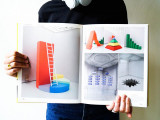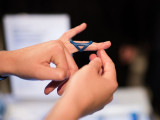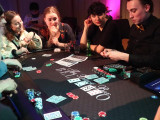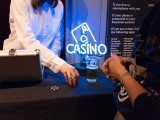MakeHealth: Prototyping II
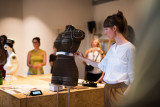
The second series of MakeHealth: Prototyping starts 22 September 2018 at Makerspace Contact.
Do you have an idea for a care solution that makes everyday life easier? Or have an aid of which you think it could be designed better? Are you a designer, an experiential expert, a healthcare professional, or an informal carer with a great idea for a healthcare solution?
At MakeHealth: Prototyping you'll be working in a team on a concrete question once per week over an seven-week period. This question could be about developing a new solution to a problem or improving an existing tool.
With MakeHealth we want to develop new, open design applications and publish these online. Your solution, including all the design files and instructions will become available on the international platform Careables. That means anyone can reproduce or adapt your solution. So you not only helping your team, but society as a whole will benefit!
Practical information
All meetings of MakeHealth: Prototyping II will take place on Saturday from 10:00 - 14:00 hrs. The next series starts on 22 September. The last meeting will be on 10 November. Participation is free. The prime language will be Dutch, but don't worry, we can easily switch to English when necessary. Register via Eventbrite.
Prior knowledge of digital manufacturing and technology is not required as we'll focus on this during the workshops. However, we do expect you to attend all the workshops, so that your team have enough time to complete their project.
Location
All meetings take place at Makerspace Contact; a location that is fully accessible by wheelchair users. The address is: Contactweg 47, 1014 AN Amsterdam. The location can easily be reached by metro near station Amsterdam Sloterdijk and has parking facilities nearby.
Programme
Meeting 1 - 22 September
Introduction to the theme, possible topics, and formation of teams. Each team begins brainstorming ideas about possible solutions. Joint decision on team's direction going forward.
Meeting 2 - 29 September
Research on possible applications, materials, and techniques. Start first designs.
Meeting 3 - 6 October
Developing designs: create drawings or models, choose material and plan for production. Start prototyping.
Meeting 4 - 20 October
Creating prototype. Experiment with materials and manufacturing techniques.
Meeting 5 - 3 November
Finish prototype and documentation.
Exposition - 10 November
Presentation of final prototypes. Looking back on learning moments and tips.
